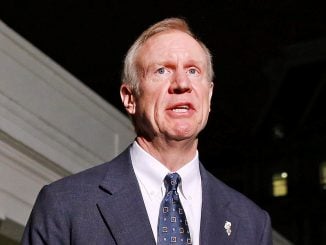
RALEIGH — North Carolina State Treasurer Dale Folwell announced Thursday that the nation’s three top bond rating agencies Fitch, Moody’s and S&P have once again stamped the state with a “AAA” bond rating, making North Carolina one of only 12 states in the country to obtain a unanimous top-tier evaluation.
The fiscal scores, all of which forecast stable financial outlooks, were in preparation for the upcoming sale of approximately $400 million in general and limited obligation bonds scheduled to be sold later this month.
“Since we are able to take advantage of historically low interest rates and our “AAA” bond ratings, we will save tens of millions of dollars,” said Folwell in a press release.
The ratings announcements included praise for North Carolina’s “conservative financial operations,” with “complete control” over state revenue and “financial flexibility.”
N.C. House Speaker Tim Moore said the unanimous rating was a “powerful endorsement of the Republican-led General Assembly’s smart spending strategies, record savings reserves and unyielding commitment to our state’s financial security.”
“North Carolina can save taxpayers tens of millions of dollars through lower interest rates, continue to attract rapid job growth and safeguard our citizens with one of the most fiscally sound governments in the United States,” said Moore in a press release sent Friday.
While the Moody’s and S&P ratings were issued in copyrighted press releases, Fitch’s analysis was made public and said the rating reflects North Carolina’s “low liabilities, conservative financial operations and long-term prospects for continued economic expansion and diversification,” while also pointing out that “the state has rebuilt its rainy day fund, another source of financial flexibility.”
After a $363 million contribution in this year’s budget, North Carolina now boasts a $1.8 billion rainy day reserve a fund that lawmakers say will help safeguard the state against future economic downturn and natural disasters.
Fitch went on to say that the state’s “broad-based revenues will continue to reflect the depth and breadth of the economy and its solid growth potential,” and that it has “complete control over its revenues.”



